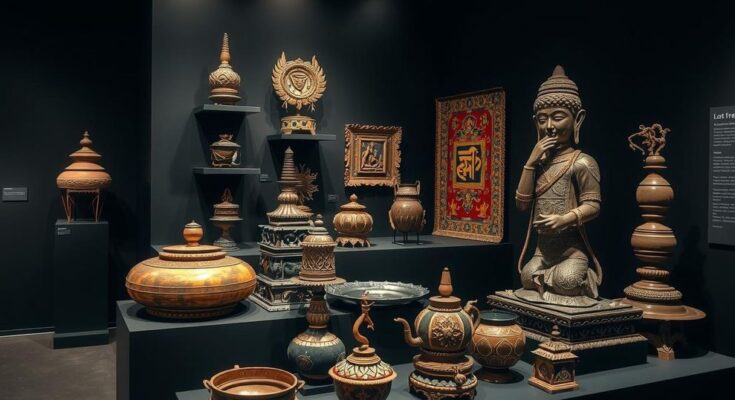Recent calls for the return of cultural artefacts to Nepal have spotlighted ethical issues within museums, especially their handling of antiquities linked to looting. Nepal has sought restitution from prominent museums, with varying responses. Legal challenges and differing ethical frameworks complicate these restitution efforts, emphasizing the need for transparency and international cooperation in cultural heritage protection.
In recent years, numerous museums have faced scrutiny over their possession of looted or unlawfully acquired cultural goods. Nepal, rich in heritage, has actively sought the return of its antiquities from renowned institutions like the Metropolitan Museum of Art and the Art Institute of Chicago. The responses from these museums highlight significant ethical dilemmas and raise questions about the lack of a cohesive legal framework governing such situations.
The illicit trade of cultural goods is a booming, multi-billion-dollar enterprise, primarily fueled by historical objects being smuggled from source countries to Western markets. Although the UNESCO and UNIDROIT conventions offer foundational legal support against such trafficking, their enforcement is complex. Individual countries regulate their own export controls, leading to inconsistent practices. Additionally, many museums follow non-binding codes of ethics that influence their policies regarding acquisitions and restitution efforts, promoting a moral commitment to addressing these issues effectively.
The ethical landscape for museums is increasingly shaped by public pressure and the active reclamation efforts of nations like Nepal. Despite the legal obstacles, the proactive approaches by some institutions illustrate a growing willingness to engage in restitution dialogues. Museums can play an influential role in addressing the illicit trade in cultural items, fostering cooperation through ethical practices, and utilizing mediation to resolve disputes effectively, ensuring a shared appreciation for cultural heritage.
Original Source: icom.museum



